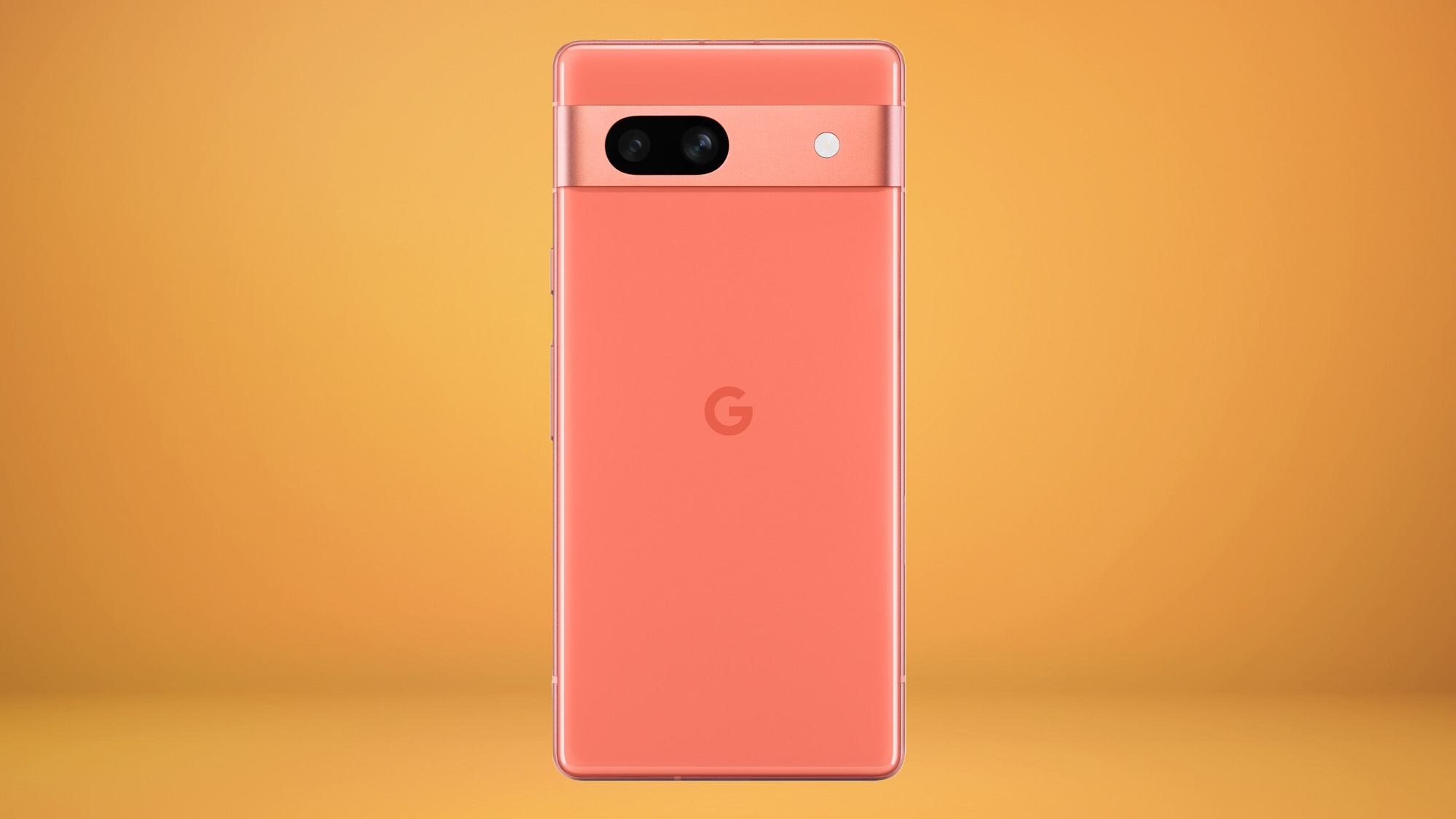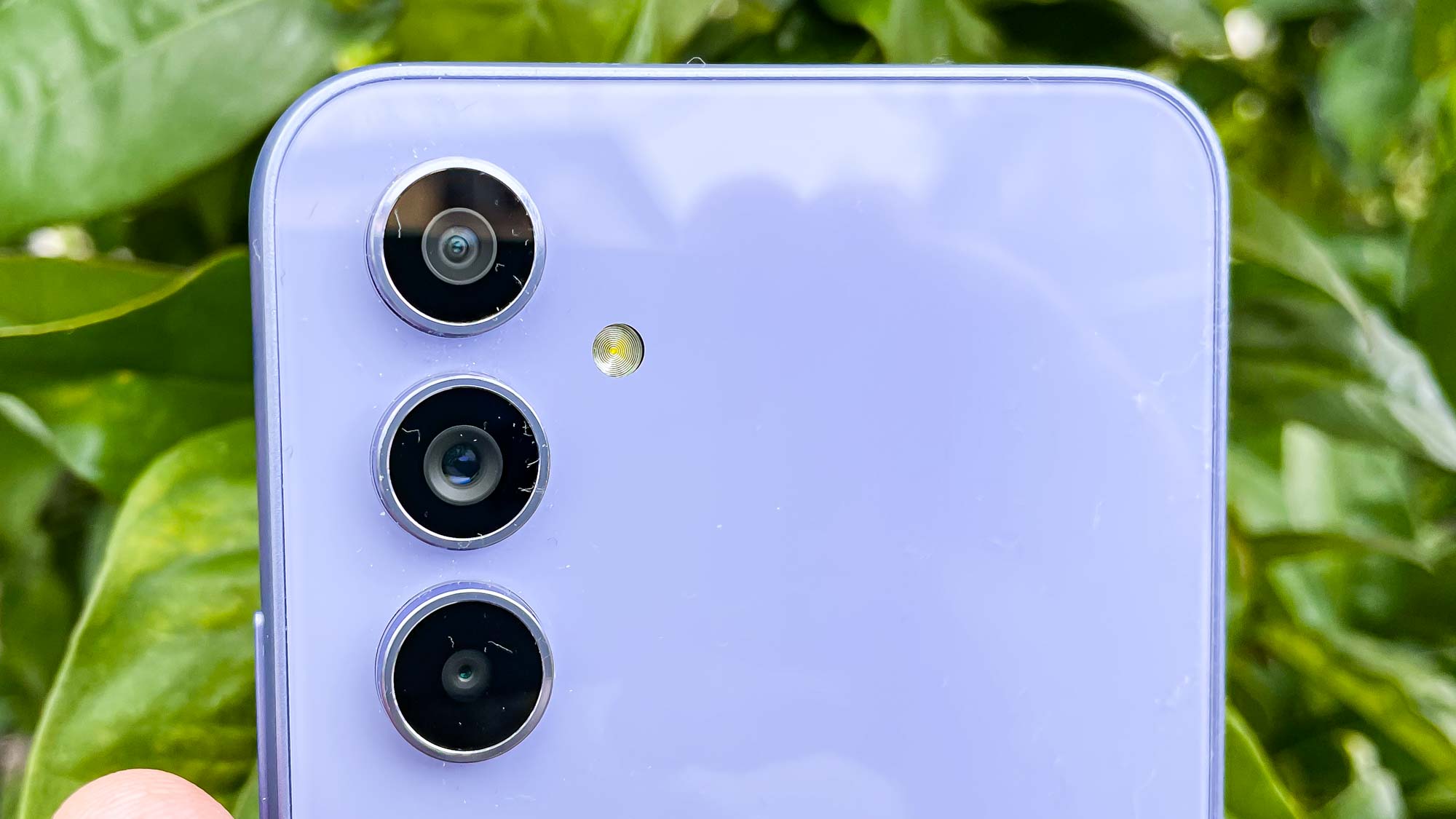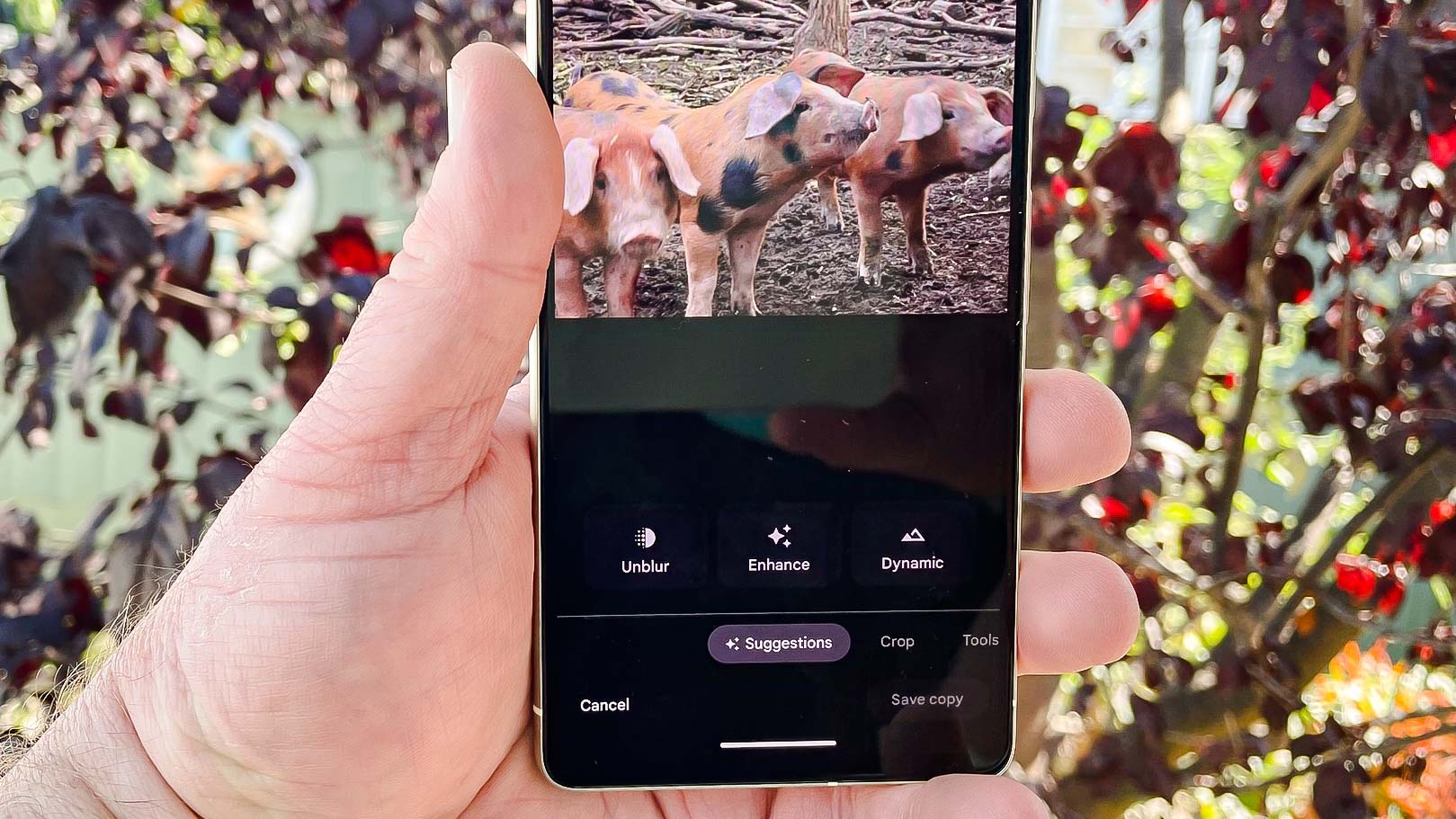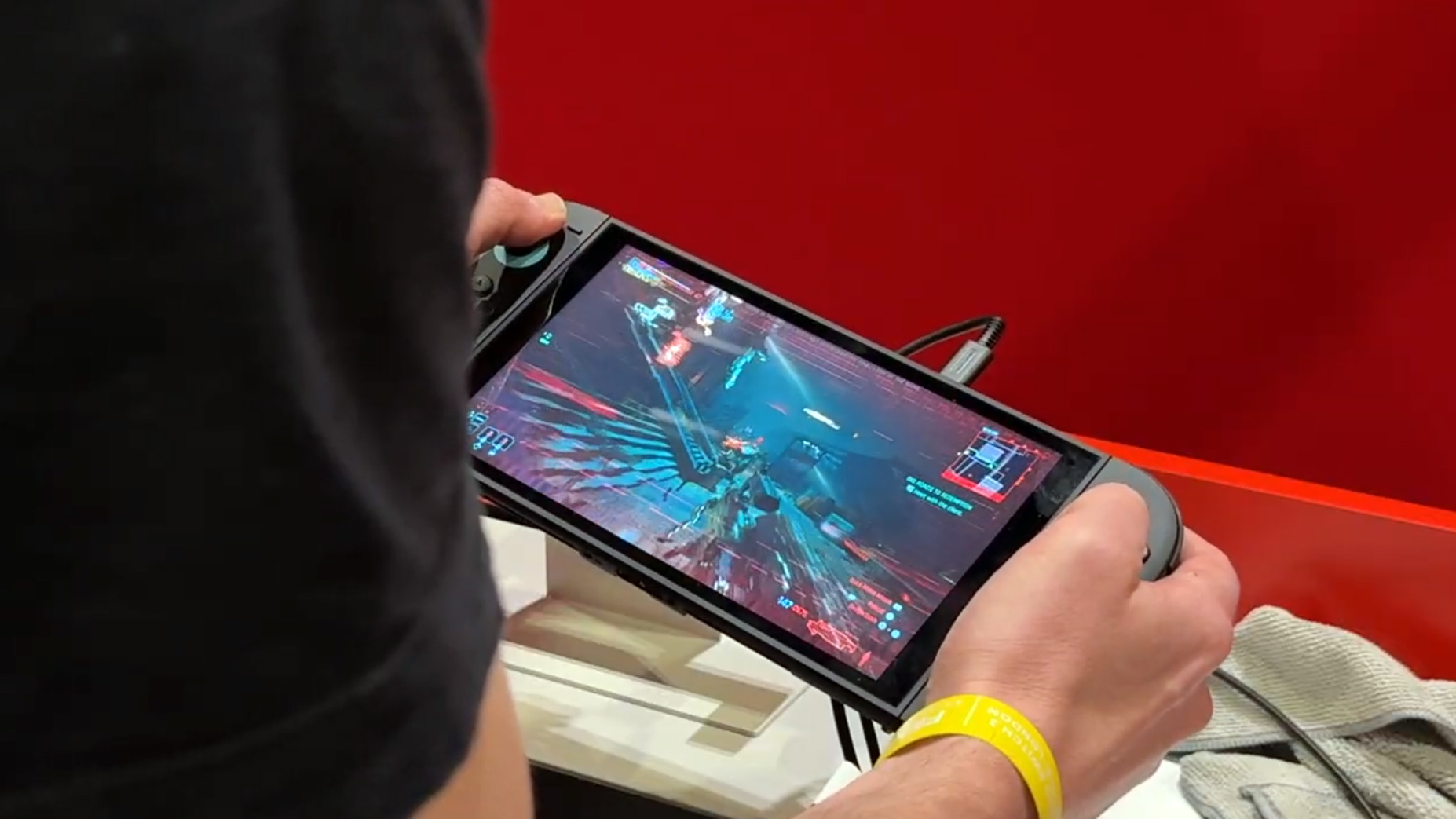Google Pixel 7a launch — here's how it can be the budget phone of the year
It all comes down to cameras for Google's next budget phone

The stage is set for the arrival of the Google Pixel 7a in less than two weeks. We've got a likely announcement date — it's widely expected the phone is going to show up at Google I/O 2023 on May 10 — and leaked Pixel 7a specs that give us a pretty good idea of what to expect from the new handset. We even have renders showing off some possible colors.
But most importantly, we have a Pixel 7a rival that's set a marker for what Google's phone will have to do to win out as the best cheap phone for less than $500.
That'd be the Samsung Galaxy A54, the latest midrange model from the leading Android phone maker. Just as Samsung's Galaxy S23 has set the bar for the best Android phones coming out this year, the A54 has established itself as the phone other midrange devices are going to be judged against — and that includes the Pixel 7a.
Then again, that's what happened last year, when the battle for the best smartphone value boiled down to picking between the Pixel 6a and Galaxy A53. Ultimately, the Pixel 6a was our pick, with the battle between those two closely matched budget devices boiling down to cameras.
And I think cameras are going to be the difference maker once the Pixel 7a and Galaxy A54 square off. The question heading into the Pixel 7a launch is whether Google's new phone can match what the Galaxy A54 already offers.
How the Galaxy A54 sets the bar on budget camera phones — and why it's important
Having tested the Galaxy A54 against the likes of the Pixel 6a and iPhone SE (2022), I think it's clear that Samsung's latest is the best camera phone to get if you don't want to spend more than $500 on your next handset. The low-light photos captured by the Galaxy A54 are much cleaner and clearer than the ones from its rivals. And as you can see in our Galaxy A54 vs. Pixel 6a camera face-off, the photos captured by both devices are evenly matched in other scenarios — sometimes the Pixel takes the better photo, sometimes the Galaxy A54 does.

It's clear how the Galaxy A54 was able to claw past the Pixel 6a, after last year's Google phone was the budget camera device to beat. And that's the 50MP main sensor the Galaxy A54 uses. It's bigger than the sensors you'll find on similarly priced budget phones, so the Galaxy A54 is capturing more detail. That's handy when the lights are low if you want accurate colors and details that aren't lost in murky shadows.
Other things are important for budget phones to be a success — battery life, a bright display and of course an affordable price tag. (It just so happens that the Galaxy A54 delivers on all those points, too.) But I think camera quality is of utmost importance, even if you're not paying up for a flagship phone. Since your handset is within reach at all times, it's the camera you're most likely to use when you spot a fleeting opportunity to capture a photo. You're not going to find much value in a camera phone that produces second-rate photos, I don't care how little it costs.
Google has some priors in this area, with previous Pixel A phones garnering raves for their photographic prowess. The difference this time, is that the Galaxy A54 is putting up more of a fight than rival handsets have in the past. Coasting on the reputation of its predecessors is not going to cut it for the Pixel 7a.
How the Pixel 7a can beat the Galaxy A54
Based on what we know about the Pixel 7a — and what we think we know — it doesn't sound like Google is going to do that. Let's start with the phone's chipset, which is all but certain to be the same Tensor G2 silicon that debuted with the Pixel 7 series last fall. That means all the AI-powered photo processing features available to the flagship Pixels will trickle down to the Pixel 7a.

Photo Unblur was the highlight of the Tensor-powered photo features that debuted with the Pixel 7, and you can bet it's going to be supported by the Pixel 7a. That's a feature that lets you take photos with blurry faces — even ones shot by other phones — and clean up the blur into something presentable. The Tensor G2 also beefed up the SuperResZoom feature for better digital zooms — crucial for the Pixel 7a, since it's not expected to feature a telephoto lens.
But some new camera hardware may be coming to the Pixel 7a, and that's what has me intrigued with any impending face-off agains the Galaxy A54's camera. According to the leaked specs that emerged in the past week, the Pixel 7a is set to inherit a 64MP main camera — quite the step up from 12.2MP sensor that the Pixel 6a relied upon. (And a few more megapixels than the Galaxy A54 has to offer, one might note.)
Megapixels certainly aren't everything. The Pixel 6a and iPhone SE certainly take excellent photos with their 12MP main camera. But 64MP would give the Pixel 7a the ability to capture more detail in its shot, via quad pixel-binning which combines multiple pixels into one. Presumably, the Pixel 7a will also offer the ability to shoot photos at full resolution making it easier to zoom in on a particular area of a shot.
Google's Pixel phones have always been strong on the software side of photo processing. It sounds as if the Pixel 7a could be getting the hardware to match.
In other words, Google's Pixel phones have always been strong on the software side of photo processing, whether you were talking about flagships or the more modestly priced Pixel A phones. Based on the rumors, it sounds as if the Pixel 7a could be getting the hardware to match.
Pixel 7a outlook
With Google I/O 2023 and the likely date of the Pixel 7a launch drawing close, we won't have to wait too long to see what Google has planned for its latest midrange phone. And while rumors point to a number of new features like a display with a faster refresh rate and the possibility of wireless charging, the details I'm interested in finding out about center around the Pixel 7a's camera capabilities. That's going to determine how Google's next phone is received.
More from Tom's Guide
Sign up to get the BEST of Tom's Guide direct to your inbox.
Get instant access to breaking news, the hottest reviews, great deals and helpful tips.
Philip Michaels is a Managing Editor at Tom's Guide. He's been covering personal technology since 1999 and was in the building when Steve Jobs showed off the iPhone for the first time. He's been evaluating smartphones since that first iPhone debuted in 2007, and he's been following phone carriers and smartphone plans since 2015. He has strong opinions about Apple, the Oakland Athletics, old movies and proper butchery techniques. Follow him at @PhilipMichaels.
-
mark_887797 I have to say, I'm getting increasingly frustrated with fanboyism camouflaging as blogging or unbiased information.Reply
I used the Pixel 7 Pro for about 3 weeks and then returned it. It was a big no for me.
The reasons are quite obvious (in no particular order):
1. Wi-Fi calling issues (out of the box)
2. primitive and inferior UI from the manufacturer of the infamous Android OS
3. almost non-functional speakers which can barely be heard
4. terrible "camera bumps and location"
5. cracking of camera lens in lower temperatures
6. poor build quality
7. lack of/poor customer technical support
8. poor/lack of accessory options
The only thing I liked about the Pixel was the low light images, but nothing else. If I want a reliable phone, this is not it.
Personally, i think Google should get out of the mobile device market. Let the other major players like Samsung, OnePlus, Oppo, Sony, and Motorola capture both the premium and frugal Android mobile device market.

